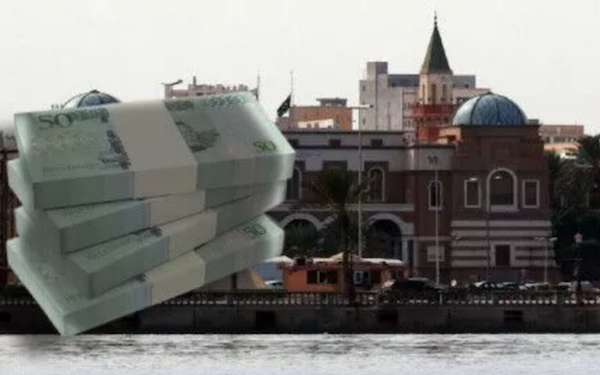Central Bank of Libya (CBL) in Tripoli failed to account for the delivery of US$4.8 billion worth of local dinar banknotes from a British printing company, according to a leaked financial review, raising questions about where the money went.
This was found in “confidential” reports reviewing activities of CBL, which were produced by the global accounting firm Deloitte and obtained by the Organized Crime and Corruption Reporting Project (OCCRP).
In 2012, the U.K.-based company De La Rue won a tender conducted by the Central Bank in Tripoli to print its currency, according to one of the two financial reviews.
That contract was amended twice in the following years, once without authorization from the bank’s board of directors, the review said. The amendments required De La Rue to increase its print run of Libyan dinars, adding up to the equivalent of hundreds of millions worth in U.S. dollars.
Documents provided by the Tripoli Central Bank showed a major discrepancy in the amount the institution should have received according to its contracts with De La Rue, and the amount accounted for in receipts it issued.
Deloitte found that 6.5 billion dinars (worth about $4.8 billion) were unaccounted for in the paperwork.
Patrick Bond, a political economist at the University of Johannesburg, said the financial review may indicate “Deloitte’s discovery of huge losses” of currency. He added that the finding –– if proven to be true –– could show “dubious practices” on the part of De La Rue, which has currency printing contracts with more than a dozen central banks in Africa.
De La Rue’s spokesperson, Stuart Donnelly of the public relations firm Brunswick Group, told OCCRP: “The response on behalf of the company is no comment.”
Andrew Feinstein, executive director of the London-based anti-corruption group Shadow World Investigations, said the report raises an important question: “Where did the printed cash go?”
Neither the Finance Ministry nor Central Bank in Tripoli responded to emailed requests from OCCRP for comment, and the phone numbers on their websites were out of service. The email address listed for the prime minister’s media contact did not work.
Deloitte noted that its findings were limited by the circumstances around its research.
“During the course of our Financial Review and based on the documentation that we were provided with by the (central banks) we were not in a position to make any conclusion or determination as to whether any fraud or misappropriation of assets may have taken place,” the report said.
